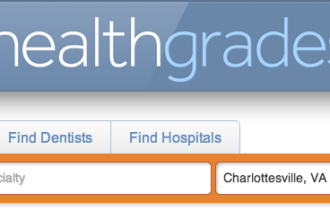Summary: As open enrollment nears, there’s an increase in the number of tools available to help you shop for insurance. I will be using the New York State of Health exchange, as I did last year, and may test-drive some of these tools. Some of them will be better than others; some may try to give you information that lets their creators make money. So: pay attention. Here’s a sampling.
First, buying insurance is complicated, as we know. Austin Frakt, the health-care economist, wrote a nice piece for The New York Times about how complicated it is even for him. So the desire to find an easy solution, a useful tool, is one we’re familiar with.
But you should know: not every tool out there on the web is really helping you. Some are trying to get you to buy something, and some have information that’s better than others. You should always look at who’s making money off your decisions. Ease of use isn’t everything (hello, healthcare.gov!)
For right now, we’re not covering getinsured.com, healthsherpaa.com and other longtime players in this post. These are new entrants we’re aware of; if you know of others, please let us know.
As open enrollment hasn’t started yet, it doesn’t make sense to test-drive these, but we’re collecting resources here. We plan to update as necessary.
Health Insurance Plan Calculator Lets you enter information and compare up to four plans. Pretty much looks like a do-it-yourself project. The information and analysis on this site is provided free to anyone on the internet who stumbles across it. You should evaluate it with the same care that you would any internet (or other) information. While great effort has been expended to make the information and arithmetic here accurate and useful, there is no warranty or guarantee, implicit or explicit. This page and this app are not the work of an insurance or health-care professional. It’s not professional advice, and you are solely responsible for reviewing and using it with care and judgment.
“This page was created by me, Steve Roth. I built a spreadsheet to do this analysis for myself years ago, and then hired a very talented fellow to build it out into this web app. Full disclosure: if this page attracts a decent amount of traffic, I’m hoping to post some ads and make some money. But to that end, I’ve just tried to provide the most useful app and information I can.
“Comments and questions are welcome! Use the form below.” As near as I can tell, he’s not making money on this.
PicWell: ‘Choosing the right health insurance is too complicated for everyone: consumers, health benefit advisers, brokers, employers, even insurance companies. Picwell’s goal is to help consumers navigate through this complexity using technology. By combining over 50 years of training in health economics and insurance, with the latest in predictive analytics and big data, we’re building tools to give you smarter, personalized recommendations: the right health plan for you. Simply put, we’re getting people to buy the right health insurance plan with ease and confidence.” Not clear what the business model is.
The Robert Wood Johnson Foundation chose six candidates to develop similar comparison engines in a “Plan Choice Challenge.” The six finalists may be seen on this page. Finalists were announced in September; for phase two of the challenge, the deadline is Jan. 12, 2015, and the winner will be announced in February. First place brings a prize of $50,000.
Places not to go to look for unbiased information
What about healthcare.com? Well, here’s a good lesson in paying attention to who’s making money.
As reported over on Wonkblog at The Washington Post, this is not connected with the government’s health exchange site, healthcare.gov, and people could be easily confused.
“If that sounds a lot like the government’s official portal for purchasing health care, that’s pretty much the idea. And it doesn’t look that different from HealthCare.gov. Stock photography of smiling people? Check. The promise to help someone find the right insurance plan for them? Yes,” Jason Millman writes on Wonkblog.
“But health care advocates say there is the potential for massive confusion among consumers trying to find the government’s official site. Users who wind up there by mistake could miss out on subsidies that most would receive if they were shopping on HealthCare.gov. And like HealthCare.gov last year, the HealthCare.com site has some kinks that it’s still working out, including inaccurate information.”
In tiny letters at the bottom of the page, the site announces: “HealthCare.com does not provide medical advice, diagnosis or treatments.
“HealthCare.com is a PRIVATELY OWNED website that is NOT owned or operated by any state or federal government agency.”








